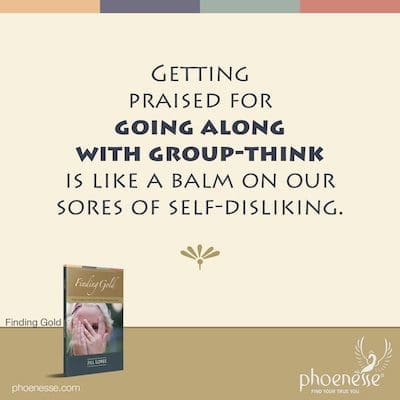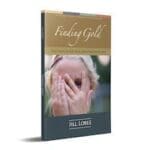What is this state of bliss of which we speak? It’s actually a state we are wired to experience. This isn’t theoretical. It’s a natural law. Not being in bliss is what’s not natural. What takes us from bliss is some kind of disturbance. Otherwise, that’s where we’d be.
This is no vague, cheesy promise for a life in the great beyond. It can be possible, right here, right now. Attaining it doesn’t depend on some herculean feat or state of perfection that’s in contradiction to our present way of being. Nothing has to be different for it to be here. Such total happiness is possible as we are now.
Deep down, we know this is our birthright. And we all want it, this pleasure supreme. Whether or not we realize that we’re the ones with the misdirected strivings doesn’t alter the facts. Which all means that we could recalibrate our search and find what we’ve been looking for. Let’s look at the two main aspects of this search.
First, our ability to land in bliss is directly related to our self-esteem—our ability to like ourselves. This equation must always come out even in the end. To the exact degree self-liking exists, happiness exists. Pencils down.
But if self-liking is missing, the psyche can’t experience its natural state. When this happens, we are alienated from universal forces, and that sets up a barrier that prevents us from joining in with the great forces of the cosmos—ah, bliss. Matters not if we have a good and valid reason for not liking ourselves. The obstacles exist either way. And we can’t just deny them away. Sticking our heads in the sand won’t undo the negative effects of self-dislike.
So we need to take a good hard look at our inner mechanisms, which run like fine clockwork in their exacting process. We can’t follow any path of self-realization without navigating these ever-so-subtle soul movements. In this case, somehow, somewhere, there’s a violation of our personal integrity going on.
If we hope to become a truly free spirit, we need to improve our ability to make independent decisions that will get us in line with universal laws. No more hand-me-down values or allegiances to cultural mores. No more “whatever they say.” No more taking on others’ opinions and calling them good enough. Living on autopilot prevents self-autonomy. And this is way more widespread than we can imagine.
We’re probably in good shape on crass issues that developed people tend to realize and get clear of. But none of us can see all the other issues that require a clean approach. In the end, any time we take any law, opinion or belief for granted that’s not a universal law of life, we slam shut the door on those cosmic feelings of bliss.

Sometimes there’s a huge gap between natural laws and what people believe. Sometimes the two are so similar it’s hard to tell them apart. But it makes all the difference in the world to have blind obedience instead of the self-choice of a free spirit. The words might match, but the flavors and inner textures of the psychic process are totally different.
When we deny ourselves the opportunity to formulate our own independent thoughts, we violate our own integrity. This stems from our lack of decency and desire to seek our own answers and be in truth. Big rebellers can be some of the biggest offenders if they simply follow the opinions of the masses and consider those beliefs to be unchangeable laws of life.
Exactly how is our integrity damaged just because we don’t want to arrive at our own conclusions about the rules of life? Because we are then being a coward. We take what’s handed to us and we don’t ask questions. And we sure don’t upset the apple cart. This is an opportunistic way to buy favor, getting others to approve of us and admire us. But we’re selling ourselves out and not coming clean about it.
We can’t have an inner hostility towards truth and be free in our psyche at the same time. If we are parroting ready-made opinions—whether we realize we are doing this or not—we are violating our own integrity. This doesn’t mean the opinion of a majority is wrong. Or if we’re aligned with a rebellious minority group, this doesn’t make those opinions wrong. But if, on the outside, we seem courageous in our defiance, but we’re blindly and unquestioningly following an emotionally tinged motive, we are tainted with cowardice and we’re being opportunistic.
This not thinking through an issue is about more than being lazy. There’s a lack of courage in conforming to a group if we think we desperately need them and can’t afford to antagonize them. There’s a special temptation here to give up thinking for oneself. We get praised for going along with whatever the group thinks. It’s like a balm on our sores of self-dislike or self-doubt. But this medicine is only treating symptoms, not the source of the problem. We’re still ignoring the natural laws inherent in who we are. That’s what makes this like a poison.
We need to remove the real reason for the self-dislike that’s there to begin with. It stems from our cowardice in selling out the truth for the sake of having others approve of us. Remove this and our courage to be ourselves grows proportionally. This then is the medicine.
We need to move ahead in steps. First we get clear about our questions, probing and coming into real awareness. At this point, action isn’t what matters most. It’s all about the knowing. Perhaps we haven’t yet mustered the courage to take a difficult action. But at least we’re in a state of truth in ourselves. We’re not deceiving ourselves any more and we’re not unaware. This places us nearer to the self, nearer to universal truth, and oh happy day, nearer to the source of bliss.
We’re naturally going to like ourselves better if we no longer take “self-understood” aspects of life for granted. To exactly the degree we do this, we establish our capacity for experiencing bliss. This is a natural response from the universe—a natural condition.
Each of us has a laundry list within us of the things we still take for granted. We would be surprised to see it. We need to have the courage to question handed-down codes, and the humility to not need to be special. And we may need to be willing to dispense with, for the sake of truth, having others approve of us.
The second aspect is our tendency to run from the mood of the moment. Our goal is to avoid contact with ourselves. But if we feel alienated from ourselves, there is a mood associated with this—anxiety, depression, hopelessness, boredom. So that’swhat’s here now.
If we don’t try to escape from it, trying to be what we are not, we can transcend it. Not go over it. Not go around it. Go through it. This is what can lead us into the pleasure that lies in every fraction of life. It doesn’t matter what our mood of the moment is. We just need to be willing to be fully present with it.
The ability to be true to natural laws and to transcend our Now are essential for connecting with the live center of our real selves. And that is the source of all goodness, forever and ever. Amen.
Return to Finding Gold Contents
Read Original Pathwork® Lecture: #150 Self-Liking: The Condition for Universal State of Bliss



